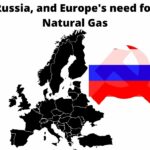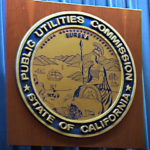A market research company with a questionable history concerning the facts claims demand for the Volt has lowered, when sales figures show the opposite.
According to several news reports currently circulating CNW Research claims the “federal investigation of three fires that occurred after Volt crash tests lowered demand for the car,” which flies in the face of the fact that Chevy Volt sales increased ever since the Chevy Volt crash test fire news broke on November 11, 2011.
It would be expected that Chevy Volt demand would have decreased once we learned of the fire risk, because conventional wisdom is that the buying public is easily spooked and will run away from risky products. We see this behavior routinely with various product scares leading to consumer panic.
If it were true that the prospective Chevy Volt owners were spooked and panicking over the fire risk then why would Chevy Volt sales have increased in the Fall of 2011? Sales were 723 in September, 1,108 in October, 1,139 in November and 1,529 in December. News of the fire risk was released on November 11, 2011, meaning the buying public has had two months to digest this information. The Volt sales in December was to people who presumably had learned of the fire risk at least a month earlier. Is this pattern of sales growth compatible with a panicked public and lowered demand?
The statement attributed to CNW Research seems to originate in a Bloomberg News report from Jan 4 where Bloomberg talks of Volt sales having fallen short of GM’s sales projections for the year. CNW’s reasoning is not explained, and the claim of “lowered demand” fits into the narrative in the Bloomberg article of weak sales and general dismal prospects.
It may be that one persons “weak sales / dismal prospects” is another persons “bright promise” depending on how you look at the situation surrounding both the Chevy Volt and Nissan Leaf. (see Strong sales for 2011 Leaf and Volt shows bright promise rather than dismal flop) However the fact of Chevy Volt sales growth is so counter to what one could call “lowered demand,” that it’s worth trying to find out what CNW Research’s reasoning is, so that we can adequately evaluate their claim.
Unfortunately the dozen or so news articles currently circulating which repeat the “lowered demand” claim above indicate many journalists are not evaluating the claims they’re republishing in their news articles. Just as unfortunately we’re unable to find a document from CNW Research explaining the reasoning they followed to conclude that demand for the Chevy Volt is lowered.
UPDATE: For an update to this story, see: Lowered demand in Chevy Volt due to price, not fires, interest in Nissan Leaf stable — the things said about CNW Research turned out to be not entirely true.
It turns out that CNW Research is a “reclusive” market analysis company with a questionable history of having played fast and loose with the facts. The CNW Research website publishes very little information itself, leaving us with the information on a Wikipedia page. There the company is described as “reclusive” and is “known primarily as an automotive marketing research company”. The customers for their research include government agencies, several news organizations, Wall Street brokerage houses, financial institutions, so despite their poor quality website their customer base indicates a company whose opinion has clout.
Their Wikipedia page goes on to describe CNW’s role in a controversy concocted a few years ago about the relative fuel efficiency of the Toyota Prius and the Hummer. The H2 (a.k.a. Hummer) was still in production by GM at that time, and anybody looking at the fuel economy stickers of the Prius and the H2 could quickly see that the H2 had much lower fuel economy than the Prius. However, CNW’s publication “Dust to Dust” made the bold claim that a Hummer gets between four and six times better fuel economy than a Toyota Prius. That conclusion seemingly flies in the face of facts, and was reached through a highly questionable line of reasoning about total lifetime of the Prius (109,000 miles) and Hummer (over 300,000 miles) and various other factors.
What we can conclude is that CNW has a history of concocting research to fit a desired narrative, and has a well-connected base of subscribers. Just as the “Hummers are more efficient than Prius’s” claim appears contradictory to the facts, so too does the claim that “Chevy Volt demand is lowered following disclosure of the fire risk”. Yet this claim is being repeated in many news reports.
GM’s Chevy Volt Misses 2011 U.S. Sales Goal as Safety Probed![]()
Originally published at TorqueNews: http://www.torquenews.com/1075/did-nhtsa-investigation-chevy-volt-fires-lower-demand![]()
- Highway design could decrease death and injury risk, if “we” chose smarter designs - March 28, 2015
- GM really did trademark “range anxiety”, only later to abandon that mark - March 25, 2015
- US Government releases new regulations on hydraulic fracturing, that some call “toothless” - March 20, 2015
- Tesla Motors magic pill to solve range anxiety doesn’t quite instill range confidence - March 19, 2015
- Update on Galena IL oil train – 21 cars involved, which were the supposedly safer CP1232 design - March 7, 2015
- Another oil bomb train – why are they shipping crude oil by train? – Symptoms of fossil fuel addiction - March 6, 2015
- Chevron relinquishes fracking in Romania, as part of broader pull-out from Eastern European fracking operations - February 22, 2015
- Answer anti- electric car articles with truth and pride – truth outshines all distortions - February 19, 2015
- Apple taking big risk on developing a car? Please, Apple, don’t go there! - February 16, 2015
- Toyota, Nissan, Honda working on Japanese fuel cell infrastructure for Japanese government - February 12, 2015












